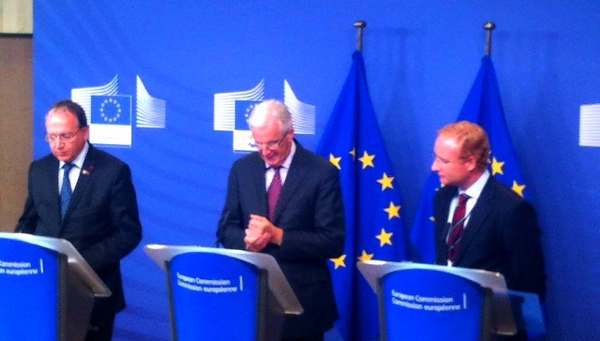

THERE are officially three languages at the European Patent Office (EPO), French, English and German. That in its own right is a controversial subject because Spanish is spoken by a lot more people and Spain is in Europe. Most member states can deal with English, some (like Belgium) feel OK with French and for 2 states as well as one to the west and several to the east German might be of some use (without fluency). But it's clear that English is the most important language. The EPO's Web site, for example, speaks English by default. As only the minority of European Patents are actually European (assigned to people of European nationality) that sort of makes sense. So how come the EPO selectively releases particularly important decisions in languages other than English? And only the spin (summary) is presented in English? It's pretty clear that the EPO is trying to bury something, as it did when that one particular case (G2/19) was going on. The EPO went out of its way to produce media noise and distract from criticism, as we noted at the time. G2/19 isn't just some ordinary case; if ruled in the particular way it could void many hundreds of prior decisions. It also concerns the crimes of Battistelli, gleefully perpetuated by his 'butler', António Campinos. This same court will soon decide on matters such as software patents in Europe. Shouldn't we know whether the court's decisions are legally valid? Considering the fact that the judges too (something through AMBA) complain about loss of autonomy? Shouldn't European people (or businesses) be permitted to see what goes on behind this veil of secrecy? How rogue is the EPO willing to become? This dam will burst one day and it won't be pretty.
"Shouldn't European people (or businesses) be permitted to see what goes on behind this veil of secrecy?"Criminals tend to go out of their way to hide their crimes. The EPO's managers are no exception. Why would they make it simpler for the public to observe their abuse? Instead of twisting, spinning, misleading etc. while making that come across as compliance with transparency policy/regulations?
The EPO's attempt to suppress publication of this case has been chronicled here for months. Media of the patent microcosm mostly played along, as we noted around the time of this case. Riana Harvey wrote on Thursday: "Rose Hughes reports on case G2/19, which the Enlarged Board of Appeal released its full reasoning for. The appeal related to a case in which a third party had submitted observations pursuant to Article 115 EPC that a patent application lacked clarity."
Go back to the original and notice the sole comment on that original: "Another possibility would be to learn German.. oh wait, what did they say about Britain? "Learning a foreign language is considered as flamboyant as wearing a crown in a bus"... well..."
"...it's very clear what the EPO is doing."How many Brits can speak German? How many people around the world in general have a grasp of the language? Maybe one percept of the world's population can speak that at mother's tongue level! Combine the population of Germany and Austria, as a fraction of about 8 billion people.
As we noted not so long ago, it's very clear what the EPO is doing. It's very clear why. To limit audience/people who are able to read the decision it was published only in German and as J A Kemp has just put it, weeks down the line there's still no English translation, month after the decision itself ("currently only available in German").
To quote "Decision From The Enlarged Board Of Appeal In G2/19" (published before the weekend):
The EPO has issued a press release (see here), which summarises the full decision (currently only available in German here) from the Enlarged Board of Appeal in G2/19.
[...]
The second answer relates to the relocation of the Boards of Appeal to Haar from Munich. Interestingly, the Enlarged Board indicated that it was only required to rule on this matter insofar as it was related to the possible infringement of the procedural right of a party. The Enlarged Board concluded that holding oral proceedings in Haar does not infringe a party’s right to be heard and that mere perceived inconvenience does not injure the right to be heard.
Although they considered it unnecessary, the Enlarged Board did nevertheless also consider the effect of Article 6(2) EPC, which states that “The European Patent Office shall be located in Munich. It shall have a branch at the Hague.” It had been argued by the appellant that Haar is not in Munich and thus locating the Boards of Appeal in Haar contravenes Article 6(2) EPC. The Enlarged Board did not accept that argument, commenting that as the main EPO body responsible for granting patents is in Munich, the requirements of Article 6(2) EPC are met. The Enlarged Board also observed that separating the Boards of Appeal geographically from the EPO administrative departments in Munich highlights the independence of the Boards of Appeal and, in view of this, it is not necessary to limit the location of the Boards of Appeal to the city of Munich itself. The Enlarged Board also noted that the Boards of Appeal in Haar are “only located slightly outside the boundaries of the city of Munich”. It therefore seems unlikely that any future challenges to the location of the Boards of Appeal in Haar will succeed.